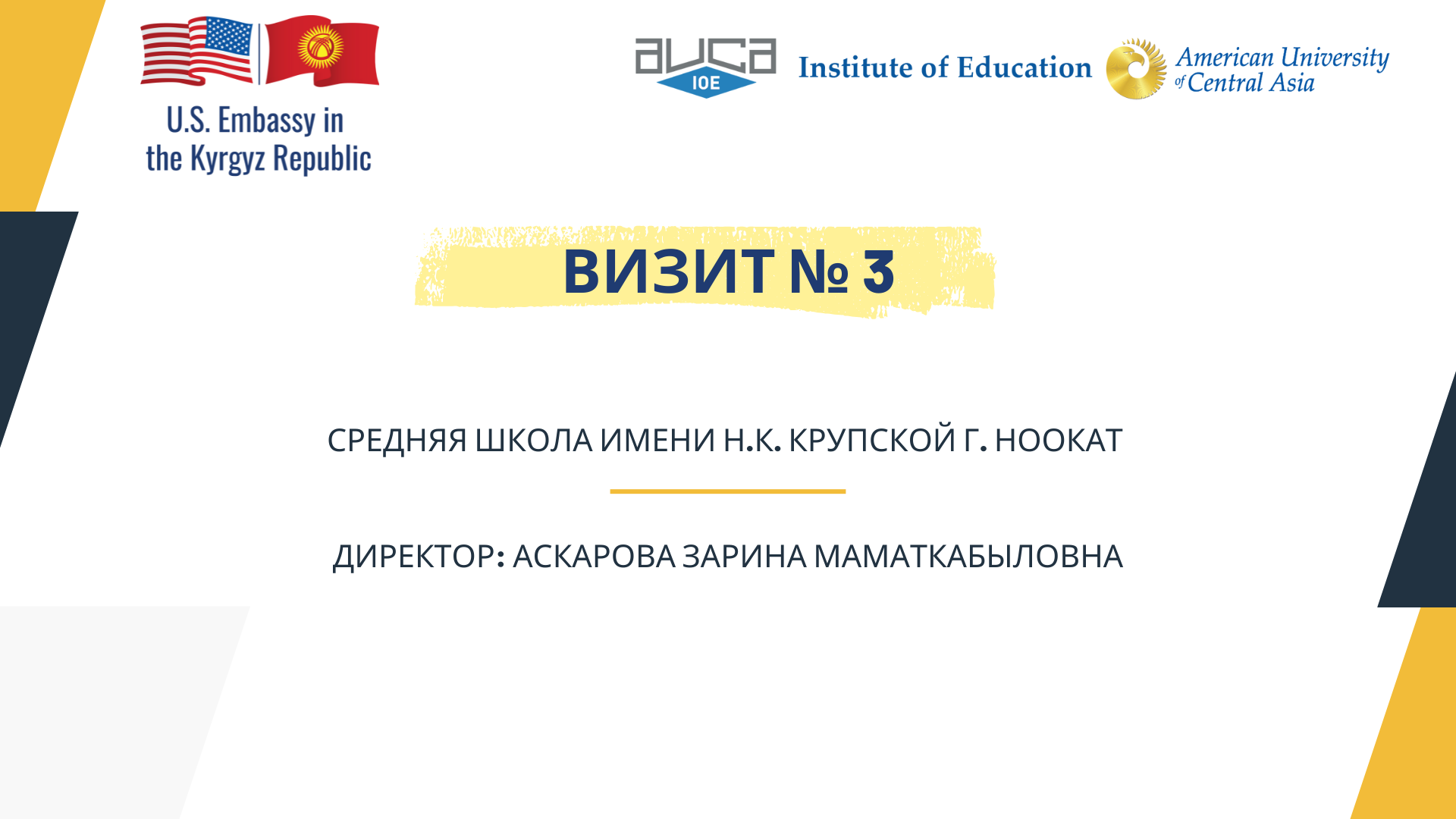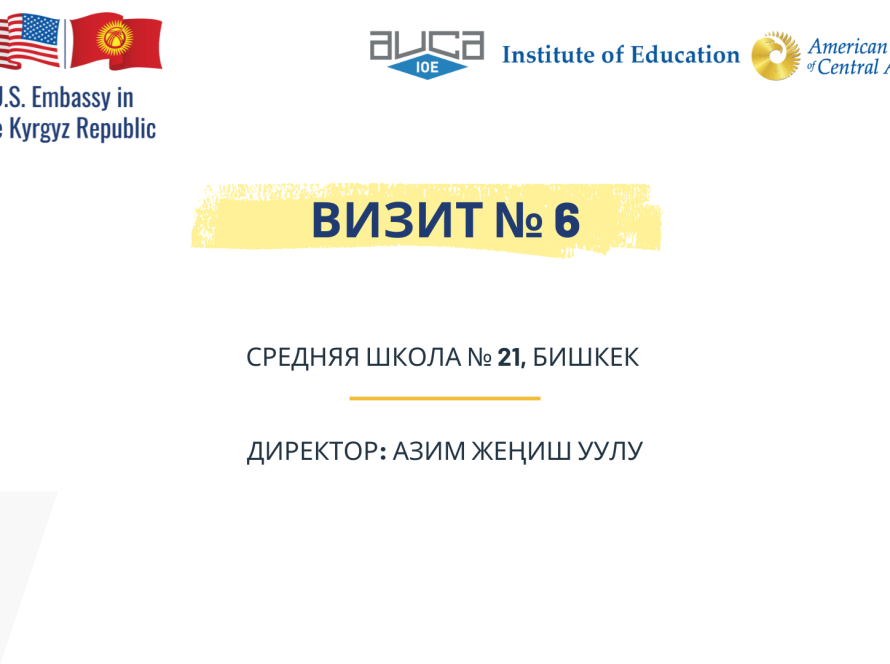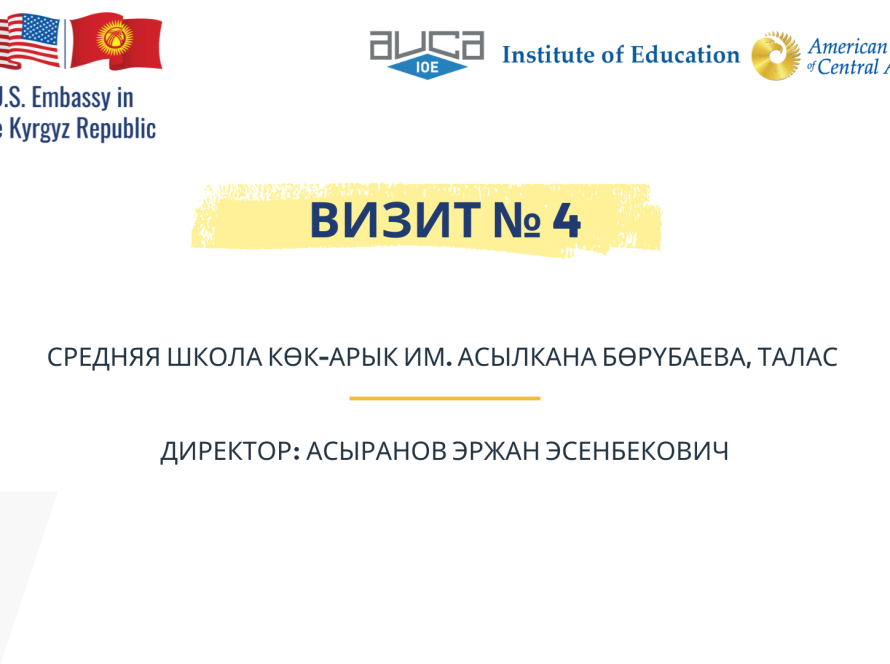Introduction
On December 20, 2024, a reciprocal school visit was held at Secondary School named after N.K. Krupskaya in Nookat as part of the FORUM 2.0 project. The visit was hosted by Director Zarina Askarova and attended by visiting directors Kyzsaikal Abdyrazakova (Nookat), Botogoz Abdykarova (Talas), and Aigul Karimova, the FORUM 2.0 Project Manager. In total, 10 school directors from the Nookat region participated, alongside the Head of the District Education Department, Mr. P. Baktybaev, and a representative from the Nookat City Mayor’s Office. This visit marked another milestone in fostering school leadership collaboration and peer learning within Kyrgyzstan’s public education system.
School Highlights
Participants were welcomed by the host school and guided through an engaging program that included classroom visits, a tour of specialized learning spaces such as the “Manas Studies” cabinet, the ethnographic room, the school library, and a resource center. The school’s commitment to cultural preservation, inclusive education, and student empowerment was evident throughout. A tour of the school dormitory followed, offering a look into the school’s extended learning environment.
The visit also included a session for watching and reflecting on the directors’ video presentations, which highlighted diverse leadership practices. Participants then engaged in open discussions on shared challenges and successful strategies in school management, followed by a joint reflection session and feedback sharing.
Discussion Highlights and Best Practices
Throughout the day, participants identified several strong practices and leadership strategies:
Collective Leadership and Staff Culture: Visitors noted the school’s cohesive and purpose-driven teacher team. The professional culture was described as collaborative, with a visible alignment around school goals and values.
Community Partnerships and Student Support: The host school demonstrated strong ties with local authorities and community members, enabling support for students from low-income families and those with special educational needs.
Interactive and Inclusive Teaching: Observations of primary classrooms revealed a focus on engaging, student-centered instruction and positive feedback culture.
Transparency and Innovation: Teachers’ profiles were accessible via QR codes in the school corridors—an innovative practice promoting transparency and stakeholder engagement.
Infrastructure and Cultural Anchoring: The school’s material base, including a media corner and an ethnographic museum room, reflected a well-rounded approach to education that connects students with both digital tools and cultural heritage.
Reflections from Participants
Visiting directors described the experience as highly enriching. For many, this was their first time participating in such a structured peer visit. One participant noted:
“It was a powerful moment of self-reflection. Seeing the successes and challenges others face reminded me that we are not alone—and that collaboration is our greatest tool.”
Several directors expressed a desire to replicate specific practices observed, such as enhanced community partnerships and the integration of cultural content into school life.
Conclusion
The Nookat visit reaffirmed the core value of the FORUM initiative: creating safe, constructive spaces for peer learning, reflection, and leadership development. It highlighted how schools across diverse regions can learn from one another while tailoring practices to their own contexts. As the network of school directors continues to grow, these reciprocal visits are planting the seeds for a more connected, resilient, and innovative school leadership culture in Kyrgyzstan.



